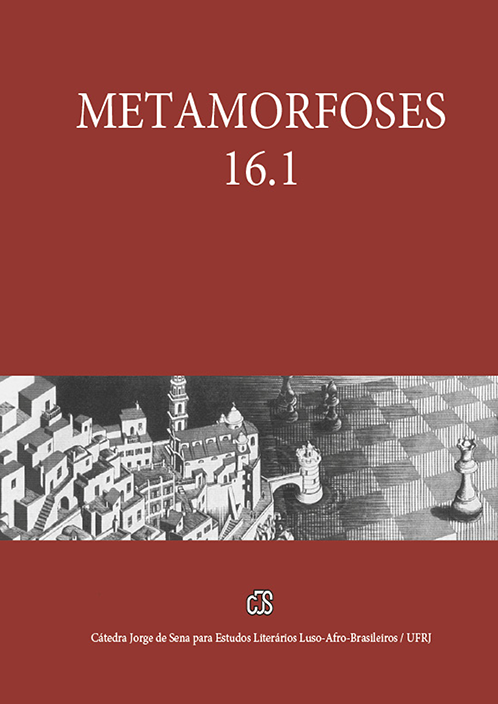The deepening of the subjective perspective in Fernando Namora’s work
DOI:
https://doi.org/10.35520/metamorfoses.2019.v16n1a28578Keywords:
Fernando Namora, Portuguese narrative of the twentieth century, subjective humanism.Abstract
The deepening of the subjective perspective in Fernando Namora’s work, from the publication of the novel O Homem Disfarçado (1957), corresponded to the needs of our historical context after the beginning of the cold war. This paper proposes the analysis of aspects of our modernity present in Fernando Namora’s Work from the Decade of 1950, such as the cooling of relations, the struggle for the maintenance of social status, the fragility of the social masks. The article also aims to observe ideals that run through the author’s literary trajectory, as the desire of belonging and the need of human coexistence. To do so, intends to raise the scenes of O Homem Disfarçado and other Fernando Namora’s narratives that cover these aspects.
Downloads
Published
Issue
Section
License
Autores que publicam nesta revista concordam com os seguintes termos:
- Autores mantêm os direitos autorais e concedem à revista o direito de primeira publicação, com o trabalho simultaneamente licenciado sob a Licença Creative Commons Attribution que permite o compartilhamento do trabalho com reconhecimento da autoria e publicação inicial nesta revista.
- Autores têm autorização para assumir contratos adicionais separadamente, para distribuição não-exclusiva da versão do trabalho publicada nesta revista (ex.: publicar em repositório institucional ou como capítulo de livro), com reconhecimento de autoria e publicação inicial nesta revista.
- Autores têm permissão e são estimulados a publicar e distribuir seu trabalho online (ex.: em repositórios institucionais ou na sua página pessoal) a qualquer ponto antes ou durante o processo editorial, já que isso pode gerar alterações produtivas, bem como aumentar o impacto e a citação do trabalho publicado (Veja O Efeito do Acesso Livre).

